Arlo Guthrie was just 19 years old the first time he performed at Carnegie Hall in November 1967. His father, Woody Guthrie, one of America’s most important singer/songwriters in his own right, had just passed away the previous month, around the same time that Arlo’s debut album, Alice’s Restaurant, was released. That album quickly generated a buzz among the hip young audience and its showpiece track, “Alice’s Restaurant Massacree,” a true (and hilarious) tale of anti-authoritarianism, draft-dodging and garbage-dumping, particularly resonated. The album soon climbed into the national top 20 and Arlo Guthrie has been a headliner ever since.
Guthrie, born July 10, 1947, was 71 years old at this show. His Carnegie Hall Thanksgiving concerts have long been an annual tradition—he’s missed a few years, but for the most part his fans can count on Arlo and various friends (for dozens of years, Pete Seeger was primary among them) and family members gracing the stage of the storied New York City venue.
On Nov. 24, 2018, Guthrie was joined for his set by his four offspring—son Abe, who plays keyboards and sings, and singing daughters Sarah Lee, Annie and Cathy, as well as Sarah’s husband Johnny Irion—and the Weight Band, a Woodstock, N.Y.-based quintet.
The Weight Band opened the show on their own, turning out an impressive six-song, half-hour set that made it clear that—as if their name isn’t already a hint—they draw much of their inspiration from the Band. The group includes a bona fide member of the reunited post-Last Waltz Band, guitarist and mandolinist Jim Weider, who replaced Robbie Robertson when the other four members regrouped in 1985.
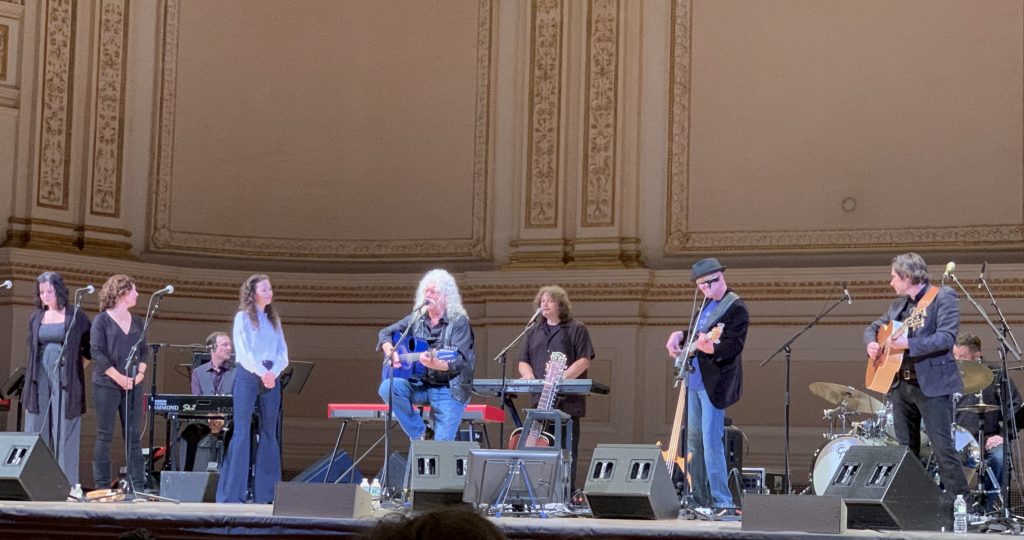
Arlo and the extended Guthrie family, plus members of the Weight Band, at Carnegie Hall, November 2018 (Photo: Jeff Tamarkin; used with permission)
But they also proved they have the potential to transcend the role of tribute band. The Weight Band opened with “Rag, Mama, Rag,” sung by drummer Michael Bram (just as Levon Helm had done with the Band) and later performed “Tears of Rage,” from Music From Big Pink. Weider also sang “Remedy,” a song he co-wrote on Jericho, a 1993 Band album. There was also a Dylan song, “Simple Twist of Fate,” and the Grateful Dead’s “Deal.” The Weight Band wears their influences proudly.
But four other tunes came from their recently released debut album, World Gone Mad, and each musician—the others are keyboardists Brian Mitchel and Matt Zeiner, and bassist Albert Rogers; all five sing—contributed significantly to the overall sound. You don’t have to be a Band fanatic to appreciate what they do (although it probably helps).
Related: Guthrie announced his retirement from the stage in October 2020
The Weight Band returned to the stage, appended by Abe Guthrie, as Arlo emerged, dressed in jeans and a simple black, long-sleeve shirt, his hair still long but now entirely white. He opened with “In Times Like These,” the title track of a 2007 album, then went directly into “Coming Into Los Angeles,” his 1969 weed-smuggling anthem from the album Running Down the Road. The sentiment of the song (a live version of which was featured prominently in the Woodstock documentary) is less relevant in these days of decriminalization, but it served to connect the singer to his Social Security-age audience, whose recognition of the tune was apparent in their hearty applause.
Guthrie’s set list was peppered with covers, including two each by Lead Belly and Bob Dylan, who, Arlo mentioned, was ensconced at that very moment a mile uptown at the Beacon Theatre, reminding Guthrie of a story. One time, he recalled, he arrived for a concert in Tucson, where a reporter approached him at the airport. “Did you know that Bob Dylan is also playing in town tonight?” Guthrie was informed. He said he did. “So why would anyone want to come and hear you?” the reporter retorted. The answer, Guthrie said good-naturedly, was because Dylan no longer performed many of his old songs—if people wanted to hear those, they’d have to pay to see Arlo Guthrie!
Another of several Arlo stories involved Pete Seeger, who, in his eighties, once phoned Guthrie and told him he didn’t think he’d be able to make their Thanksgiving get-togethers anymore. “I can’t sing or play the way I used to,” the older artist said. “Look at our audience,” Guthrie came back with. “They can’t hear like they used to.” They continued the shows for many more years.
Watch Guthrie perform a Seeger number earlier that year
That upbeat spirit remained intact throughout the all-too-brief show on Saturday. Sarah Lee Guthrie took the lead on “A Satisfied Mind,” a country song made famous by Porter Wagoner, and Johnny Irion offered “Airline to Heaven,” an unfinished Woody Guthrie composition that Wilco and Billy Bragg included on their joint album Mermaid Avenue Vol. 2.
Arlo sat at the piano for a song inspired by an old runaway dog—he preceded it by noting he’d never performed it before, and it showed, but no one seemed to mind much. He also did “Gypsy Davy,” a traditional folk song that Woody also liked to sing and, late in the set, several young girls—more family—joined the crowd onstage for the inevitable but always welcomed “This Land Is Your Land.”
And of course there was the Steve Goodman-penned “City of New Orleans,” the closest thing Arlo Guthrie ever had to a hit single when it reached #18 in 1972.
It was all over in just more than an hour—there’d be no “Massacree” tonight—save for a two-song encore, the Band’s “The Weight” and another Woody number, “My Peace,” which Arlo often uses to say goodnight.
Watch Arlo perform “My Peace” a year later
Guthrie’s 2019 Thanksgiving concert was his last. He noted onstage that he’s done the event now “more than 50 times,” so he deserves the break. If so, he can retire the tradition knowing that he’s still at the top of his game—there was no diminishment in his voice or performing skills here—and that his people, who filled every seat in the famed hall this evening, were with him all the way.
Watch Arlo at an earlier Carnegie Hall performance
Related: Our interview with Arlo Guthrie

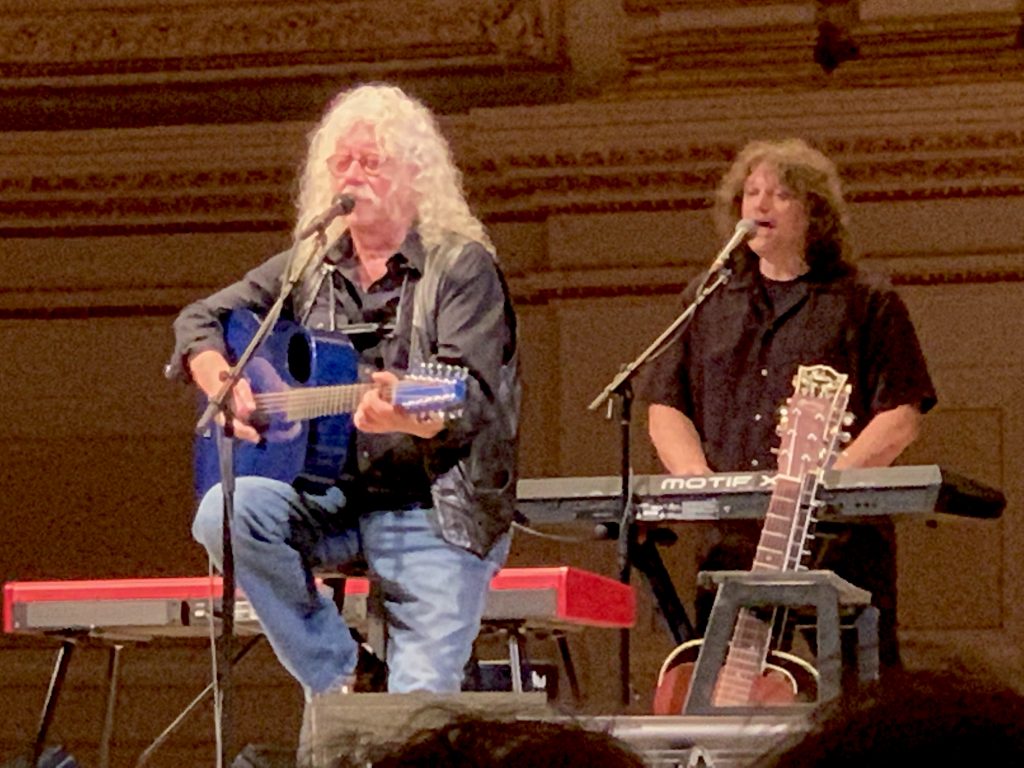

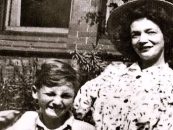
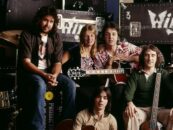
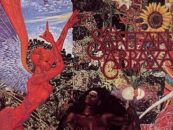
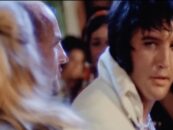

2 Comments so far
Jump into a conversationC’mon Jeff, surely you know that “A Satisfied Mind” is not a traditional folk song, but a country song written by Red Hayes and Jack Rhodes that was a #1 hit for Porter Wagoner on the country charts.
I know the Porter Wagoner and Byrds versions and have heard a few others do it. Guess it depends on your definition of “traditional” but I’ll fix the wording. It was introduced at the show as traditional.